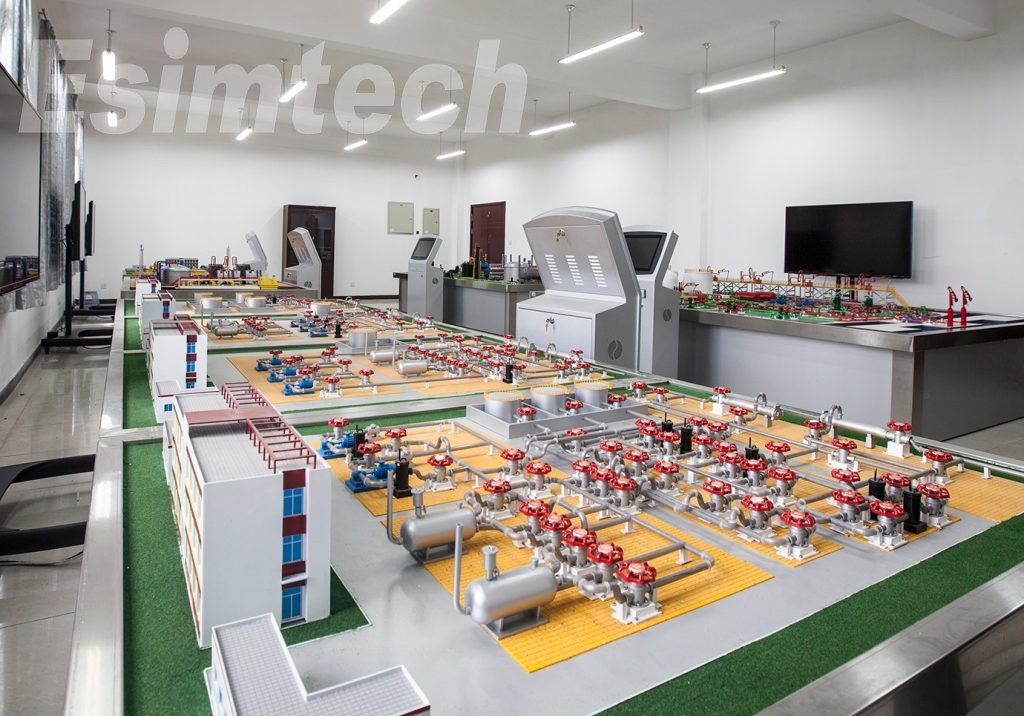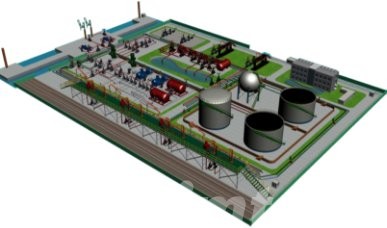The oil and gas industry is a multifaceted and ever-evolving industry, heavily reliant on efficient and secure gathering and transportation operations. Traditionally, training within this sector demanded extensive on-the-job experience, often consuming valuable time, financial resources, and posing potential safety risks. Enter the Oil and Gas Gathering and Transportation Simulator, a cutting-edge solution harnessing the power of virtual reality (VR) and simulation to offer a realistic and immersive training experience for oil and gas professionals. In this article, we delve into the essence of the Oil and Gas Gathering and Transportation Simulator, exploring its key attributes and the benefits it brings to the industry.

Understanding the Oil and Gas Gathering and Transportation Simulator
The Oil and Gas Gathering and Transportation Simulator represents a groundbreaking training tool that leverages virtual reality (VR) and simulation technologies to construct a virtual realm mirroring the intricacies and challenges encountered in actual gathering and transportation scenarios.
This state-of-the-art simulator equips trainees with VR headsets, immersing them in a simulated environment where they can interact with various gathering and transportation components and equipment. This virtual landscape accurately replicates pipelines, tanks, compressors, pumps, valves, and other vital industry infrastructure. Trainees gain the ability to monitor pipeline integrity, conduct equipment inspections, manage flow rates, and effectively respond to crisis situations.
Moreover, the simulator offers a wide array of tailored scenarios, replicating diverse operational conditions such as fluctuating weather patterns, equipment malfunctions, and maintenance demands. This controlled environment allows trainees to refine their skills and make informed decisions, free from the real-world consequences of any missteps.

Key Features and Advantages of the Oil and Gas Gathering and Transportation Simulator
1. Realistic Simulation
The simulator provides an astonishingly lifelike virtual environment, faithfully mirroring the complexities of oil and gas gathering and transportation processes. Trainees undergo a genuine representation of their responsibilities and the challenges posed by real-world scenarios, encompassing everything from infrastructure and equipment to ever-changing weather conditions.
2. Immersive Virtual Reality Experience
The simulator with virtual reality (VR) technology delivers an immersive experience to trainees through . Donning VR headsets, they fully engage with the virtual environment, becoming wholly absorbed in gathering and transportation operations. This heightened level of immersion significantly enhances training effectiveness, promoting deeper engagement and more fruitful learning outcomes.
3. Hands-On Training
The simulator allows students to actively interact with simulated pipelines, tanks, compressors, pumps, and other equipment, offering a hands-on approach to training. Trainees can gain practical experience in a controlled environment, engaging in tasks such as monitoring, inspection, and responding to emergencies. This hands-on training fosters skill development and boosts confidence in handling real-world challenges.
4. Safety Training and Risk Mitigation
Safety is paramount in gathering and transportation operations. The simulator serves as a platform for practicing safety protocols, emergency response procedures, and risk management techniques. Trainees learn to detect and efficiently manage potential hazards and incidents by simulating these scenarios, fostering a safety-conscious mindset and enhancing safety performance in the field.

5. Performance Tracking and Analytics
The simulator includes features for performance tracking and analytics, enabling trainees and organizations to measure and evaluate performance. Trainees receive feedback on their actions and decisions, helping them identify areas for improvement. Analytics empower organizations to assess overall training effectiveness, optimize programs, and make informed decisions regarding skill development and budget allocation.
6. Cost-Effectiveness
In contrast to traditional training methods, the simulator offers a cost-effective alternative. It reduces the need for physical resources, site preparation, and logistical arrangements, thus driving down associated costs. Trainees can acquire valuable expertise and competence in a virtual setting, reducing on-the-job training durations and operational disruptions.
7. Continuous Learning and Refresher Training
The simulator facilitates ongoing learning and refresher training for the oil and gas industry. As new technologies, procedures, and regulations emerge, trainees can return to the simulator to refresh their knowledge and stay abreast of industry developments. This adaptability ensures a continuous pool of expertise, ready to meet evolving industry demands.
In Conclusion
The Oil and Gas Gathering and Transportation Simulator represents a significant advancement in oil and gas industry training technology. This revolutionary solution, combining virtual reality and simulation, provides a secure, realistic, and cost-effective training environment. It empowers industry professionals with the skills and knowledge needed to excel in gathering and transportation operations, ultimately enhancing safety and efficiency in this dynamic sector.


